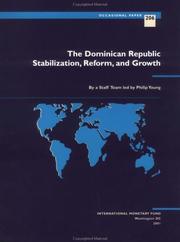| Listing 1 - 3 of 3 |
Sort by
|

ISBN: 0520247272 9780520247277 0520249291 9780520249295 Year: 2007 Publisher: Berkeley: University of California press,
Abstract | Keywords | Export | Availability | Bookmark
 Loading...
Loading...Choose an application
- Reference Manager
- EndNote
- RefWorks (Direct export to RefWorks)
Tourism --- International economic relations --- Dominican Republic --- Globalization --- Political aspects --- Foreign economic relations --- Economic conditions --- Social conditions --- #SBIB:39A74 --- #SBIB:39A11 --- #SBIB:328H32 --- Holiday industry --- Operators, Tour (Industry) --- Tour operators (Industry) --- Tourism industry --- Tourism operators (Industry) --- Tourist industry --- Tourist trade --- Tourist traffic --- Travel industry --- Visitor industry --- Service industries --- National tourism organizations --- Travel --- Global cities --- Globalisation --- Internationalization --- International relations --- Anti-globalization movement --- Etnografie: Amerika --- Antropologie : socio-politieke structuren en relaties --- Instellingen en beleid: Midden en Latijns-Amerika --- Economic aspects --- Foreign economic relations. --- Dominika Kyōwakoku --- Dominikaaninen tasavalta --- Dominikanische Republik --- Dominikanska republiken --- Quisqueya --- República Dominicana --- Republiḳah ha-Dominiḳanit --- République dominicaine --- San Domingo --- רפובליקה הדומיניקנית --- ドミニカ共和国 --- Santo Domingo (Spanish colony) --- Globalization - Dominican Republic --- Globalization - Political aspects - Dominican Republic --- Tourism - Dominican Republic --- Dominican Republic - Foreign economic relations --- Dominican Republic - Economic conditions - 1961 --- -Dominican Republic - Social conditions - 1961 --- -Globalization

ISBN: 1462338089 1452727791 1589060466 9781589060463 Year: 2001 Volume: 206 Publisher: Washington, D.C. : International Monetary Fund,
Abstract | Keywords | Export | Availability | Bookmark
 Loading...
Loading...Choose an application
- Reference Manager
- EndNote
- RefWorks (Direct export to RefWorks)
This paper summarizes the authorities’ stabilization efforts, how these efforts were subsequently reinforced by certain key structural reforms, and other related developments that help explain the remarkable performance of the Dominican Republic’s economy in the 1990s during which the country achieved one of the highest output growth rates in Latin America, combined with low inflation, and a much improved external debt profile. The authorities often resorted to external arrears as a means of financing the external current account deficits of the 1980s. Although rescheduling agreements were reached with the international banking community and with the Paris Club of official creditors in the mid-1980s, they met with limited success until the authorities embarked on their stabilization program of the early 1990s. Large and persistent fiscal deficits represented a significant burden for monetary policy. Although at the beginning of the decade more than half of the public deficit was financed by foreign loans, episodes of default on external and domestic government debt led to a progressive drying up of these sources of financing.
Dominican Republic --- economische indicatoren --- hervorming --- amerique latine --- 338.97293 --- latijns amerika --- Economic policy and planning (general) --- Economic conditions --- Economic policy --- Economic policy. --- 330.05 --- croissance economique --- politique economique --- situation economique --- economisch beleid --- monetair beleid --- economische groei --- economische toestand --- Dominican Republic - Economic conditions - 1961 --- -Dominican Republic - Economic policy --- Exports and Imports --- Money and Monetary Policy --- Public Finance --- Taxation --- Production and Operations Management --- International Lending and Debt Problems --- Taxation, Subsidies, and Revenue: General --- Monetary Policy, Central Banking, and the Supply of Money and Credit: General --- Trade Policy --- International Trade Organizations --- National Government Expenditures and Related Policies: Infrastructures --- Other Public Investment and Capital Stock --- Investment --- Capital --- Intangible Capital --- Capacity --- Public finance & taxation --- International economics --- Macroeconomics --- Monetary economics --- Banking --- Revenue administration --- Tariffs --- External debt --- Arrears --- Public investment and public-private partnerships (PPP) --- Taxes --- Public sector --- Economic sectors --- Debts, External --- Revenue --- Industrial productivity --- Money supply --- Tariff
Book
ISBN: 0520282256 052095789X 9780520957893 9780520282254 Year: 2014 Publisher: Berkeley
Abstract | Keywords | Export | Availability | Bookmark
 Loading...
Loading...Choose an application
- Reference Manager
- EndNote
- RefWorks (Direct export to RefWorks)
In The Devil behind the Mirror, Steven Gregory provides a compelling and intimate account of the impact that transnational processes associated with globalization are having on the lives and livelihoods of people in the Dominican Republic. Grounded in ethnographic fieldwork conducted in the adjacent towns of Boca Chica and Andrés, Gregory's study deftly demonstrates how transnational flows of capital, culture, and people are mediated by contextually specific power relations, politics, and history. He explores such topics as the informal economy, the making of a telenova, sex tourism, and racism and discrimination against Haitians, who occupy the lowest rung on the Dominican economic ladder. Innovative, beautifully written, and now updated with a new preface, The Devil behind the Mirror masterfully situates the analysis of global economic change in everyday lives.
Dominican Republic -- Economic conditions -- 1961-. --- Dominican Republic -- Foreign economic relations. --- Dominican Republic -- Social conditions -- 1961-. --- Globalization -- Dominican Republic. --- Globalization -- Political aspects -- Dominican Republic. --- Tourism -- Dominican Republic. --- Globalization --- Tourism --- Political aspects --- Dominican Republic --- Foreign economic relations. --- Economic conditions --- Social conditions --- Holiday industry --- Operators, Tour (Industry) --- Tour operators (Industry) --- Tourism industry --- Tourism operators (Industry) --- Tourist industry --- Tourist trade --- Tourist traffic --- Travel industry --- Visitor industry --- Global cities --- Globalisation --- Internationalization --- Economic aspects --- República Dominicana --- République dominicaine --- Quisqueya --- San Domingo --- Service industries --- National tourism organizations --- Travel --- International relations --- Anti-globalization movement --- ドミニカ共和国 --- Dominika Kyōwakoku --- Dominikaaninen tasavalta --- Dominikanska republiken --- Dominikanische Republik --- רפובליקה הדומיניקנית --- Republiḳah ha-Dominiḳanit --- Santo Domingo (Spanish colony) --- E-books --- andres. --- boca chica. --- capital. --- caribbean islands. --- caribbean. --- central america. --- culture. --- discrimination. --- dominican republic. --- economy of difference. --- ethnographic fieldwork. --- gender studies. --- gender. --- global economic change. --- globalization. --- government and governing. --- haiti. --- haitians. --- hispaniola. --- history. --- identity politics. --- imagination. --- impact of transnationalism. --- informal economy. --- livelihood. --- masculinity. --- politics. --- poverty. --- power and wealth. --- power relations. --- racism. --- sex tourism. --- telenova. --- transnational capital. --- transnational.
| Listing 1 - 3 of 3 |
Sort by
|

 Search
Search Feedback
Feedback About UniCat
About UniCat  Help
Help News
News